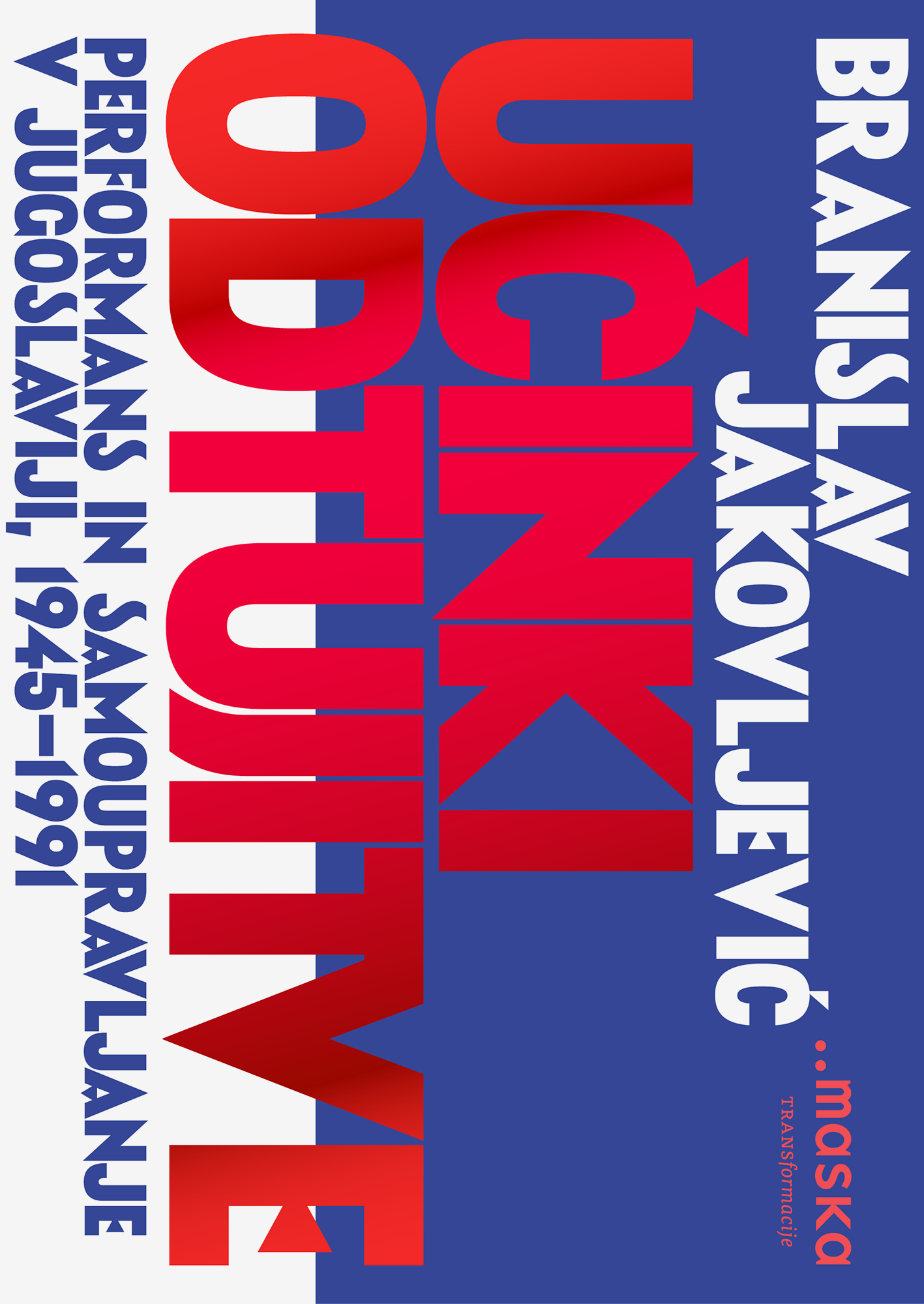Branislav Jakovljević: Alienation Effects: Performance and Self-Management in Yugoslavia, 1945-91

In the 1970s, Yugoslavia was a remarkably dynamic and rich area of conceptual art and performance. At the same time, it followed an original form of political economy of self- management. Jakovljević’s work explores the strong connection between the democratisation of art and industrial democracy, which makes the Yugoslav culture of the era extremely difficult to classify.
The author contradicts the spontaneous assumption that Eastern European art before 1989 was either official or dissident and shows that the dissolution of Yugoslavia was not the result of some ancient hatred between the nations but a consequence of the idea of self-management being perverted and ruined. The book therefore analyses mass performances on national holidays, proto-performances such as Waiting for Godot in 1954 in a former Belgrade concentration camp; the 1968 student demonstrations; and body-art works by Gina Pane, Joseph Beuys, Marina Abramović and others. It also offers a fresh perspective on the works of famous artists and academicians, e.g. the early experimental poetry by Slavoj Žižek, and other conceptual artists that deserve a special analysis.
Alienation Effects: Performance and Self-Management in Yugoslavia, 1945-91 received the Joe A. Callaway Award for Best Book in Drama or Theatre and the 2017 Association for Theatre in Higher Education Outstanding Book Award.
TRANSformacije Collection, book no. 45
Collection editor: Gregor Moder
Translation: Aleksandra Rekar
© Maska
ISBN 978-961-6572-60-6
This book was published in Slovenian.
Excerpt
In Alienation Effects I engage performance that occurred under a specific form of political economy that proclaimed an ambition to overcome the division between productive and unproductive, industrial and aesthetic labor. This political economy is inseparable from a performance culture that is contemporaneous with the one all too familiar in the West, but at the same time significantly different from it. Unlike scientific and performance management, self- management was not only a concrete set of organizational principles of industrial and nonindustrial labor, but also a vehicle for the political, ideological, and even aesthetic representation of labor. Under selfmanagement, performance is not a free-floating paradigm, but a practice that ties together a variety of human actions that are always specific and never free of ideology. In this book I am arguing for a multiplicity of performance introduction histories and the specificity that comes with it. Since the end of the Cold War, the “opening” of Eastern Europe has brought a wholesale approach to its recent past, especially when it comes to avant-garde and experimental art. These revisionist histories have pushed Yugoslav post– World War II art into the Eastern European “camp” without giving any consideration to its position vis- à- vis its own social, political, and cultural setting. I am not saying that performance and other art forms are overdetermined by their political and social context; however, abstracting them from this milieu brings a certain leveling of the field that only serves art industries and their profits. This equalization is based on formalist analysis and its obsession with periodization and lines of influence. Performance is particularly vulnerable to the shortcomings of this kind of approach.
– Branislav Jakovljević: Alienation Effects
About the Author

Branislav Jakovljević is Professor at the Department of Theater and Performance Studies at Stanford University, California. He publishes scientific articles on the history of theatre, Russian and Soviet avant-garde, American contemporary experimental theatre. He received multiple awards for his work; among them are “Association for Theatre in Higher Education Outstanding Article Award” for the essay “From Mastermind to Body Artist: Political
Performances of Slobodan Milosevic” (published in TDR 52:1, 2008), and the prestigious “Hellman Faculty Scholar Award” for the project “Province without Borders: Yugoslav Conflict from Local Politics to Global Justice” (2009). In 2013, he presided the 19th Performance Studies International meeting at Stanford University. In 2009, he published a book on Soviet avant-garde artist Daniil Harms (Daniil Kharms: Writing and the Event, Northwestern UP). The Slovenian translation of Alienation Effects (published in English original in 2016, University of Michigan Press, and in Serbian in 2019, Orion Art) is the most comprehensive edition so far – also thanks to the excellent work of the translator.
Contents
UVOD: SOCIALIZEM IN SOCIALNOST
Samoupravljanje
Odtujitev
Performans
1. POGLAVJE: TELOPIS
Performativna država
Koreografija dela
Et in Illyria Ego …
Socialistični barok
Socialistični esteticizem
Drugi dela
2. POGLAVJE: SINTAKTIČNI PERFORMANSI
Onkraj načela izvedbe
Razpokani barok
Performans samoupravljanja
Razširjeni mediji/zožena politika
Vrač kot kirurg
Kirurg kot krojač
Odtujevanje neodtujljivega
1968/86/89 218
3. POGLAVJE: DEFEKTI RAZODTUJITVE
Federacija interesov
Druga linija
Je kdo omenil odtujitev?
Tuje
Denar kot medij
Postkonceptualna poetika
Uporabna vrednost postmodernizma
Aphanisis